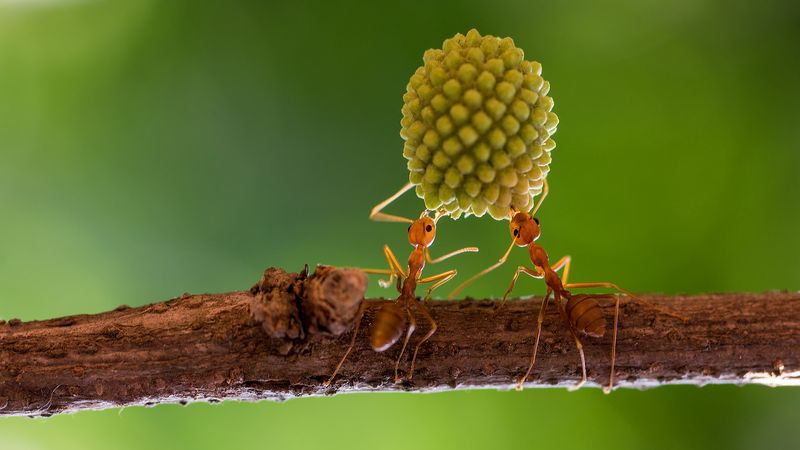Imagine a society where thousands of tiny citizens work in perfect harmony, building intricate underground networks and farming crops — thats the world of ants. But how did these minuscule marvels evolve such complex social systems? A groundbreaking new study offers answers.
Scientists from the Global Ant Genomics Alliance on Monday published their research in the international journal Cell, unveiling the genetic foundations behind major adaptive leaps in ant evolution and their co-evolving social traits.
By applying comparative genomics across diverse ant lineages, the team pinpointed novel genetic elements that powered shifts in colony behavior and form. From the division of labor driving day-to-day operations to the rise of specialized castes, these genetic innovations helped ants spread and thrive in nearly every habitat on Earth.
Beyond illuminating ant evolution, this work provides a fresh lens on how small tweaks in DNA can spark big changes in social organization — insights with potential to inform bio-inspired design in robotics, sustainable agriculture, and beyond.
This study marks a milestone in evolutionary genomics — and its only the beginning. What other secrets are waiting in the genomes of our planets hidden architects?
Reference(s):
Scientists uncover genetic innovation underlying evolution of ants
cgtn.com




